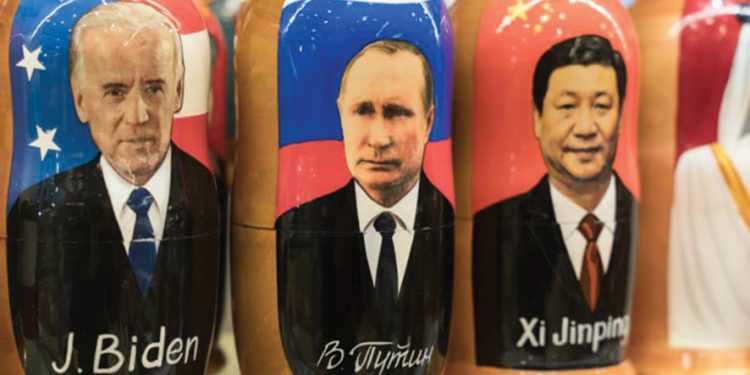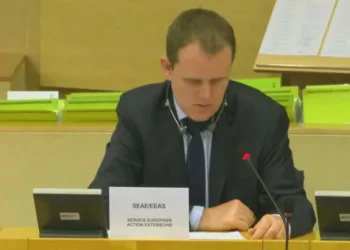What kind of new world order can we expect? Will the world’s biggest states work together to shape it? Before delving into thoughts on that future world order, it should be mentioned that beyond the large states and global corporations which will work toward it, the factor of human agency is also important, though often impossible to determine. Personalities and their ideas will matter, and, as such, building that future order will be a difficult and competitive process, and challenging to predict with any accuracy.
Signs of erosion of the post-Cold War world order are unmistakable. The changes in the present global balance of power are twofold. First is horizontal, which involves the return to normalcy of the economic and political strength of the Asian states, headed by China. Second is a vertical shift caused by liberal overextension, as well as multiple changes, such as those in technology, which enables non-state actors to become geopolitically disruptive.
Though the disappearance of the Soviet rival power ideally should have propelled the long-term uncontested US-led world order. In reality, America’s unipolarity and overextended liberal order have ultimately undermined its power. America’s unrivaled economic and military prestige, which freed it from operating exclusively within the agreed-upon norms it had established, has turned against it. Its long-time allies and partners no longer see the necessity in strictly abiding by Washington’s rules. Thence come vacillations within US alliances, and turbulence on the world stage that challenge the very premises of US power and the liberal idea.
The emergence of a new world order is inevitable. The coming system is going to be less US-driven and more chaotic. But having an imperfect world order is still more effective than having no order at all. Even a troubled order can be worked on and perfected over time with efforts backed by sufficient military power. The construction of a new order will follow the logic of previous orders. It will reflect the then existing balance of power. Great powers generally build an order which fits into their interests and aspirations. But often not all great powers agree upon a set of rules. Those who oppose will tend to create an alternative vision. This means that orders are also inherently incomplete. There are always loopholes which cause divergencies from an established set of rules. Incompleteness brings about debates on the need to re-invent or renegotiate the principles of the system. In a way, the world order cannot be static in itself. Its unchanging nature would doom its operation. This also means that the present evolution toward a new world order is a natural, evolutionary move.
What is more or less established is that though there might be a disagreement on which power, China or the US, will be sufficiently stronger to claim primacy on the world stage, a broader agreement exists among scholars that the future world order will revolve around these two powers. This does not rule out the emergence of multipolarity, but the latter could be an extremely uneven one, where Russia, India and others will serve as geopolitical poles, but with significantly limited capabilities in comparison with China and America. The regional orders that Moscow, Delhi and others build will, to a certain extent, have to reflect Beijing or Washington’s geopolitical interests.
Nevertheless, the US power, however diluted it will be and heavily blunted by various actors, is likely to remain fundamental over the next decades. There is a growing likelihood of America trying to limit its commitments in various far-flung lands and instead recalibrate its foreign policy toward big challenges. This will go hand-in-hand with a growing emphasis on a major advantage the US still has: A string of trusted allies. Despite vacillations, the connections are strongly underpinned by liberal-democratic solidarity.
Connected to the likely re-emergence of spheres of influence is the return of the great power competition, a resurgence of authoritarianism which now molds into illiberal challenge undergirded by capitalism—the weapon usually associated with liberalism. The great power competition also means that in the future world order, the collective West will no longer face a singular threat, but rather a set of interlinked global challenges. Mounting a resolute response will be doubly challenging, but not impossible, as the reaction to the 2022 Russian invasion of Ukraine has shown.
Analysis by Emil Avdaliani














